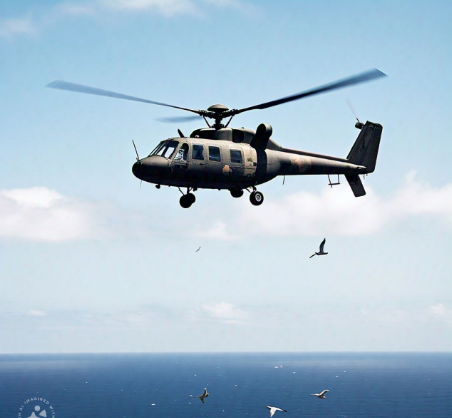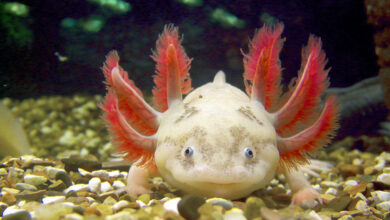What Allows Birds to Not Fly Near Helicopters: Understanding Their Behavior

When we see helicopters flying high in the sky, it might make us wonder why birds don’t fly close to them. What allows birds to not fly near helicopters? The answer lies in a combination of instinct, sound, and the birds’ ability to sense danger. Birds are very sensitive to their surroundings and can detect changes in the air and sound around them. Helicopters, with their large size and powerful rotor blades, create vibrations and loud noises that birds naturally avoid.
Helicopters are very loud, and their blades create strong air currents that can make birds feel unsafe. Birds are quick to react to potential threats in their environment. They have sharp senses and can feel these disturbances long before they can see the helicopter. In this post, we’ll explore how birds’ natural instincts help them avoid flying near helicopters and why it is important for their survival.
What Allows Birds to Not Fly Near Helicopters? The Role of Sound and Air Currents
Birds are very good at sensing their environment, and that’s why they often avoid helicopters. When a helicopter is flying, it produces a lot of noise and air movement. These sounds and vibrations can be felt by birds long before they can see the helicopter. It’s like how we might feel uncomfortable with loud sounds, but birds are much more sensitive to them.
The noise from helicopter blades can make birds think there’s danger nearby. The loud spinning blades create air currents that disturb the air. These disturbances can confuse birds or even scare them into flying away. Birds use their sharp senses to detect these changes in the air and avoid the helicopter without even seeing it. This is part of their natural survival instincts, keeping them safe from possible harm.
Why Birds Are Naturally Programmed to Avoid Helicopters
Birds have evolved over time to react quickly to things that could harm them. One of their main survival skills is avoiding predators, and that includes loud or strange noises. Helicopters, with their powerful engines and spinning blades, produce sounds that birds associate with danger. Their natural instinct is to fly away from anything that could threaten them.
When a bird hears a helicopter, it doesn’t wait to see if the helicopter is close. Instead, it takes action right away and flies in the opposite direction. This quick reaction helps birds stay safe. Even though helicopters are much larger than any bird, the sounds and air changes they create make it clear to birds that they need to move. This behavior is instinctual, and birds have developed this skill over millions of years to stay alive.
How Helicopters Affect Bird Behavior in the Sky
The presence of a helicopter in the sky can have a huge effect on bird behavior. Birds flying at higher altitudes may suddenly change direction when they feel the pressure from the helicopter’s rotor blades. This can be a life-saving response, as helicopters can come close to birds very quickly. By changing direction or flying lower, birds avoid the danger without even having to be aware of the exact location of the helicopter.
Another factor is the unpredictability of helicopter movements. Birds like to have control over their flight paths, and helicopters move in ways that birds aren’t used to. They might hover, rise, or drop suddenly, which makes it hard for birds to predict and react. As a result, birds tend to fly away to avoid getting too close to something they can’t predict, like a helicopter.
The Importance of Instinct: What Keeps Birds Safe from Helicopter Blades
Birds have a natural ability to sense and react to potential dangers. Their instincts are finely tuned to detect things like loud noises and sudden changes in the environment. When they hear a helicopter, their first reaction is to get away quickly. The helicopter’s noise and vibration are enough to make birds realize it is a threat, even if they don’t fully understand what it is.
These instincts play a crucial role in a bird’s survival. Birds have survived for millions of years by trusting their instincts. Their ability to sense a helicopter before it gets close allows them to escape danger and stay safe in the air. Whether they are migrating or just flying around their home, these instincts help keep them away from harm.
Conclusion
In conclusion, birds are incredibly skilled at sensing potential dangers in their surroundings. What allows birds to not fly near helicopters is their sharp instincts, sensitive hearing, and ability to detect changes in the air. When they sense a helicopter nearby, they act quickly, flying away to keep themselves safe. Their natural reaction helps them avoid harm, even before they can see the helicopter. This is a wonderful example of how animals have evolved to protect themselves from dangers they may not fully understand.
Birds have developed these survival instincts over millions of years, and they are essential for their safety. By being able to detect sounds, vibrations, and air changes from helicopters, birds can quickly move away and find safer areas. It’s a perfect example of nature’s ability to keep animals safe in an ever-changing world. So next time you see a helicopter in the sky, remember that the birds flying away are using their instincts to stay safe.
FAQs
Q: Why do birds avoid helicopters?
A: Birds avoid helicopters because they can sense the loud noise and air movements from the helicopter, which make them feel threatened and unsafe.
Q: Can birds hear helicopters from far away?
A: Yes, birds have very sensitive hearing and can detect the sound and vibrations of helicopters from a great distance, allowing them to fly away in time.
Q: How do birds react to helicopters flying nearby?
A: When birds sense a helicopter, they quickly change direction or fly to a lower altitude to avoid getting too close to the danger.
Q: What causes birds to fly away from helicopters?
A: The loud noise, vibrations, and air disturbances created by helicopter blades are what cause birds to fly away.
Q: Do all birds react the same way to helicopters?
A: While most birds react by flying away, their response can vary depending on the type of bird, its size, and how sensitive it is to noise and vibrations.

